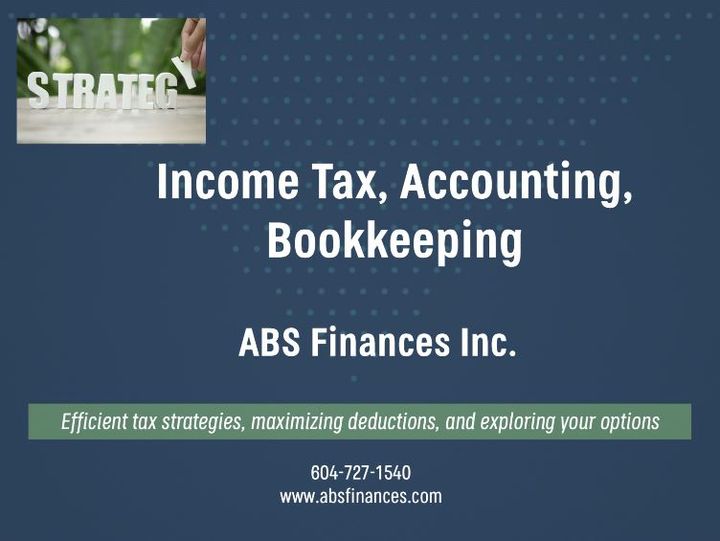Explore the Medical Expense Tax Credit for tax returns and reduce your tax burden
Discover effective strategies for maximizing your tax return through medical expense claims. Explore eligibility and guidelines to ensure you capitalize on available benefits

Who Qualifies for Medical Expense Claims?
Individuals eligible for claiming medical expenses include the taxpayer, their spouse or common-law partner, or a dependent child under 18 years old.
These expenses should be paid by the taxpayer or their legal representative, which may include the spouse or common-law partner. However, it's important that the taxpayer maintains control over the bank account from which the expenses are paid; otherwise, the expense may be denied.
What medical expenses are eligible for claiming?
Eligible expenses include those paid for the taxpayer, their spouse or common-law partner, or a dependent child under 18 who relies on the taxpayer or spouse for support.
There's a separate calculation for the medical expense tax credit for other eligible dependents, with considerations regarding the 12-month time period as detailed below.
In general, all eligible medical expenses can be claimed, regardless of whether they were incurred within or outside Canada.
However, if medical expenses are reimbursed by an insurance plan, only the portion not reimbursed can be claimed.
Common medical expenses you can claim:
Attendant care and care in a facility
Care, treatment, and training
Construction and renovation
Devices, equipment, and supplies
Gluten-free food products
Prescribed drugs, medications, and other substances
Service animals
Services and fees
Travel expenses
Explore further information on eligible expenses in my articles:



Timeframe for Medical Expense Claims
Medical expenses are eligible for claim if they were incurred within any consecutive 12-month period ending in the current tax year and were not previously claimed in the preceding tax year. This represents the sole criterion for the timing of the expenses. Both federal and provincial medical expenses, as well as those for other eligible dependents, must be claimed for the same period.
Claiming Medical Expenses for Lower Net Income Spouse
It's generally advisable to combine the total medical expenses for both you and your spouse or common-law partner on one tax return. You have the option to claim the medical expenses on either spouse's tax return or split them between spouses.
If both spouses have taxable income, it's typically more beneficial to claim the medical expenses on the tax return with the lower net income. This is because either $2,635 (federal for 2023, $2,759 for 2024) or 3% of net income (whichever is less) is deducted from the medical expenses to calculate the amount eligible for the tax credit. If the expenses are divided between spouses, this deduction is applied twice — once for each spouse's claim.
Tax Tip: If the spouse with lower income lacks sufficient tax payable to utilize the medical expense tax credit fully, transferring some or all of the expenses to the spouse with higher income could be advantageous.

Documentation for Medical Expense Claims
Medical expense claims undergo thorough review and reassessment by the Canada Revenue Agency (CRA). Therefore, maintaining detailed records of your medical expenses is crucial. The CRA typically requires evidence of payment, such as credit card statements or receipts, along with documentation from the pharmacy or service provider indicating the product or service provided and the recipient. Prescription receipts should include the name of the prescribing medical practitioner.
Calculation of Medical Expense Tax Credit
Medical expenses for the taxpayer, their spouse or common-law partner, and dependent children under 18 are reported on line 33099 of the federal tax return. Only expenses exceeding the lesser of $2,635 for 2023 ($2,759 for 2024) or 3% of line 23600 net income can be claimed for the federal tax credit.
The medical expenses are subject to the lowest tax rate to determine the credit amount. Combining the medical expenses of both spouses on one tax return, particularly the one with the lowest net income, typically results in a higher credit, except in cases where the income is so minimal that there is no tax liability to offset the credit.
Additional information is available on the CRA website:https://www.canada.ca/en/revenue-agency/services/forms-publications/publications/rc4065/medical-expenses.html
Disclaimer:
“Please note that the information provided in this article is of a general nature and may not be accurate for your specific situation. The information is current as of the date of posting and is not intended to provide legal advice. It's always recommended that you consult with a professional accountant and lawyer for personalized guidance and advice."




